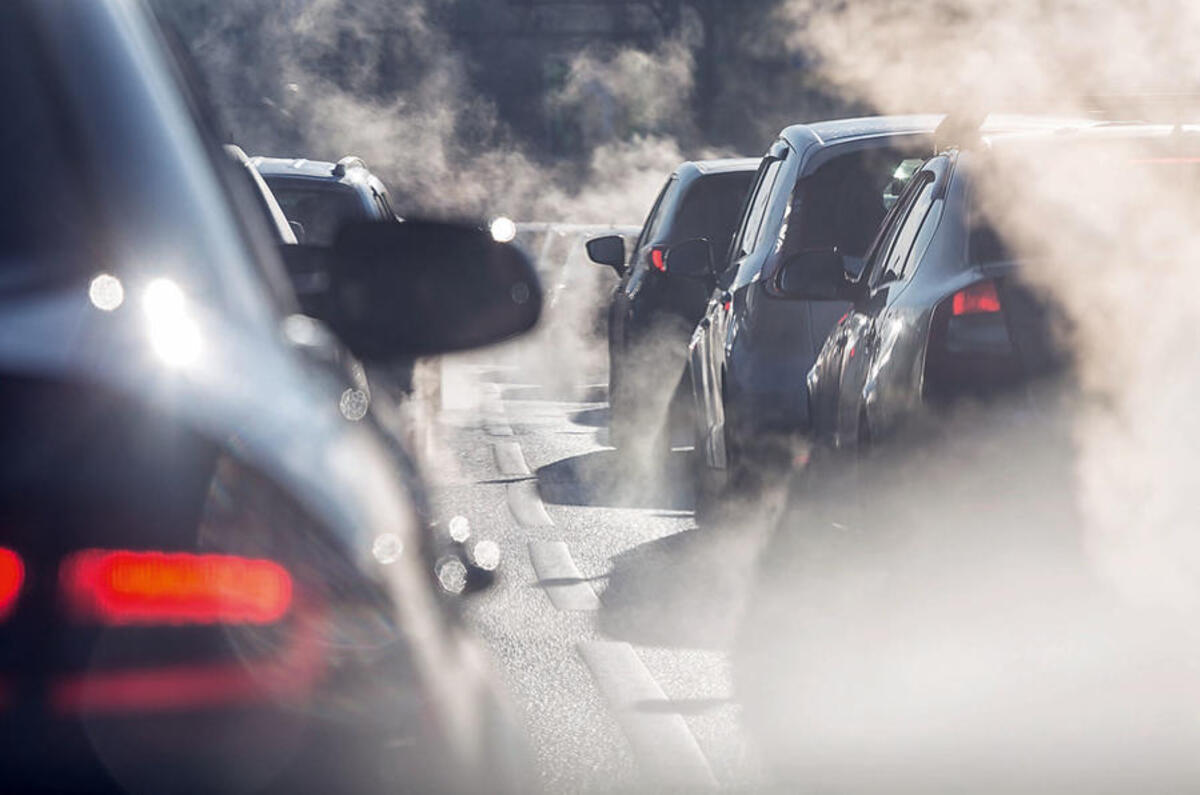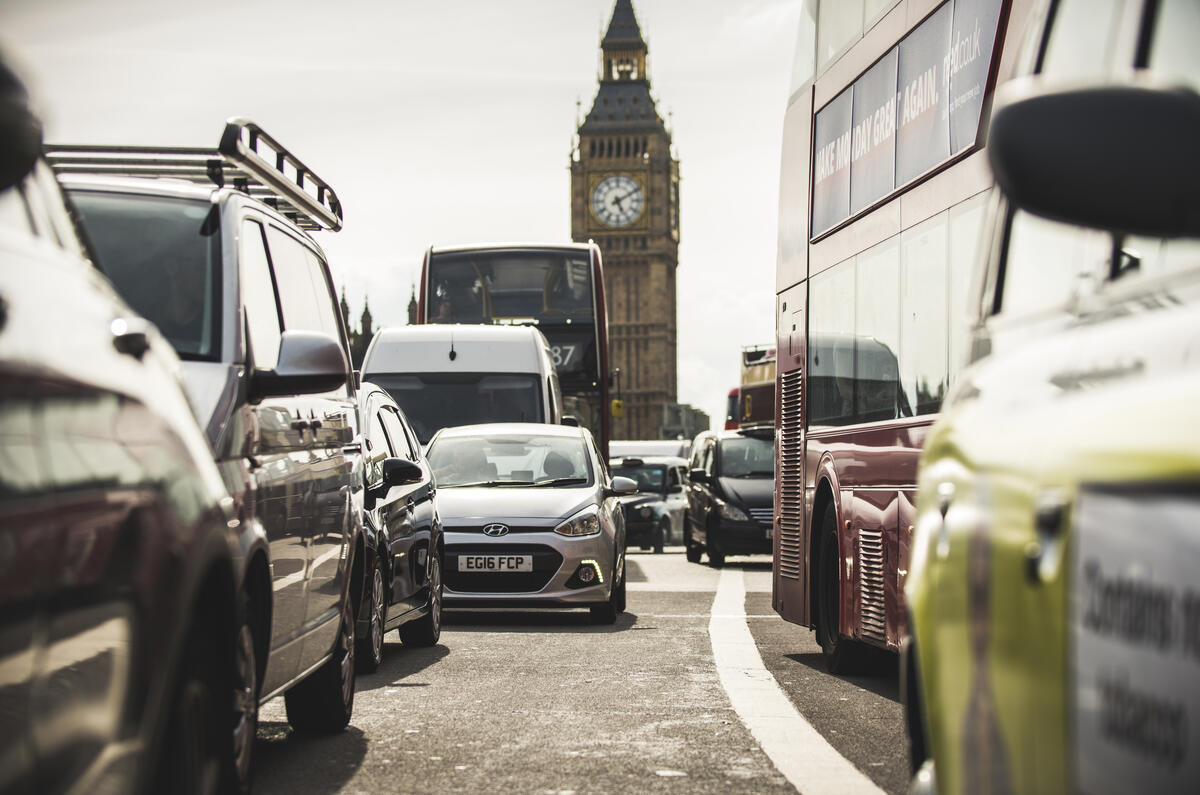Only electrified cars and vans will be sold from new in the UK from 2040, the government has announced in a paper published by the Department for Environment, Food and Rural Affairs (DEFRA).
The move is part of a £2.7bn blueprint for tackling air pollution, and is consistent with the Government’s election manifesto. The ban won't affect cars with hybrid and plug-in hybrid drivetrains, but rather "conventional petrol and diesel cars".
The paper also mentions further possible exemptions for combustion engine cars, once air quality levels improve to a satisfactory point. It says "Local authorities should bear in mind such access restrictions would only be necessary for a limited period and should be lifted once legal compliance is achieved and there is no risk of legal limits being breached again".
A targeted scrappage scheme for older diesel vehicles is also being considered, but it won't be ratified until after a consultation period.
What are the best electric cars on sale today? Read Autocar's verdicts here
In 2017 around 4% of all new car sales have been plug-in hybrids or fully electric, with around a quarter of that figure sales of fully electric cars. Current predictions by charging point firm Chargemaster suggest that the first one million plug-in hybrid or electric car will be on the road by 2022, by which point electrified car sales will account for around 10% of all new car sales. There are around 40m cars on UK roads today.
Society of Motor Manufacturers & Traders CEO Mike Hawes cautioned that the automotive sector could be 'undermined' if the industry was not given enough time to adapt to the new policy.
"Much depends on the cost of these new technologies and how willing consumers are to adopt battery, plug in hybrid and hydrogen cars," said Hawes.
"Currently demand for alternatively-fuelled vehicles is growing but still at a very low level as consumers have concern over affordability, range and charging points.
France pledges to ban petrol and diesel cars by 2040
"Outright bans risk undermining the current market for new cars and our sector which supports over 800,000 jobs across the UK so the industry instead wants a positive approach which gives consumers incentives to purchase these cars."
Additionally, a £255 million fund is expected to be set up to aid councils to clean up the most polluted inner-city areas.
Potential methods of tackling local issues include introducing charging for high-polluting vehicles through to the removal of speed humps and traffic calming measures has also been highlighted as a possible improvement. Money will also be made available to retro-fit pollution-reducing technology to public transport
Air pollution is linked to around 40,000 premature deaths a year in the UK. A government spokesman said: "Poor air quality is the biggest environmental risk to public health in the UK and this government is determined to take strong action in the shortest time possible.”
The industry reacts
Several car makers have welcomed today's news, with Hyundai stating that the combustion engine ban aligns with its current plans. A spokesperson told Autocar "Hyundai Motor has already launched the new Ioniq – the world’s first car to offer Hybrid, Plug-In Hybrid and full Electric powertrains all in one bodystyle –which is currently on sale in the UK. To date in 2017, it has sold circa 15,000 Hyundai Ioniq vehicles in Europe and 2500 in the UK.







Join the debate
Add your comment
2040
A lot could happen in 23 years - can the government accurately predict what battery technology will be in use by then, eg graphene/aluminium - by then lithium ion could be as obsolete as lead acid and molten sulphur EV's.. .
I suspect that very mild bolt on hybrid technology could be an easy workaround, possibly even LPG. A lot more needs to come out about the relative benefits of petrol and diesel and air pollution caused by other sources.
Presumably British car makers will continue to make petrol/diesel vehicles for World markets where electrical legislation and infrastructure is less prevalent by 2040.
Governments held accountable
Where do you stop with that? Look at climate change taxes. The money raised doesn't do ANYTHING other than go to general causes like defence, education, and the NHS. That's why the idea of climate change is promoted so strongly by every government minister. The funny thing is, they now cannot do without those taxes! If man-made climate change was proved wrong tomorrow, we'd all still be paying climate taxes 23 years from now.
I think the issue is a bigger
I think the issue is a bigger one than that and I try to look at it from a chain of profits perspective. I remember a firm in the US who designed a power cube which was a kind of fuel cell and stackable to make up the power you wanted. he could have easily sold that on the domestic market but that would kill off the energy giants in the US so he was only allowed to sell to commercial firms to power buildings and data centres.
investment funds of all sorts contain a lot of shares of the large oil and gas firms. Although it pennies they make but stuff they sell by the lorry load is huge profits. banning combustion engines now or in the next 5 years will mean their accounts will take a huge hit and in turn the funds that contain their shares will take a huge hit as well. this 2040 ban seems to give these firms time to adjust and look into alternative investments or income revenues to offset the drop in fuel sales whilst in the meantime this gives green tech firms to rachet up the investment to get the technology out.
The other issue I can't understand is when diesels were promoted big time by the government didn't any scientists at the time think there are other gases that come out of the exhuast and how harmful they might be. I can't imagine a group of scientists didn't see this coming. surely someone forecasted the rise in diesel sales and the knock on effect it will have. it all just smells a bit corporate to me. Now they say diesels are more harmful. the consumer can't be held responisble for this, the government should be held accountable for encouraging this rise in diesel sales as well as other industrial representative bodies.